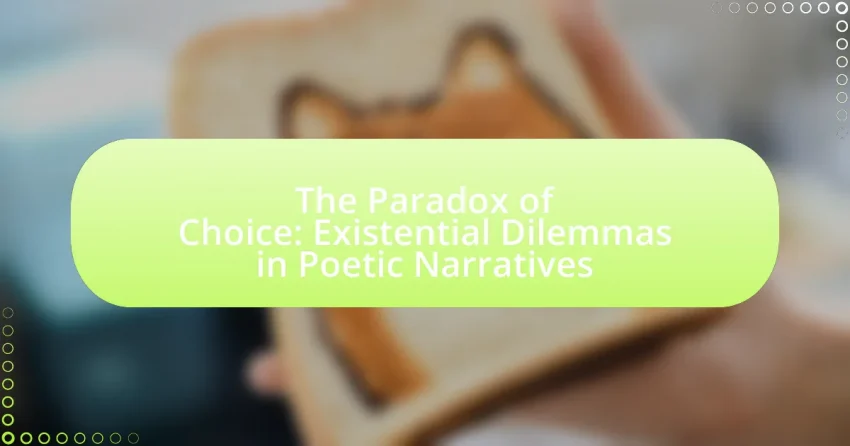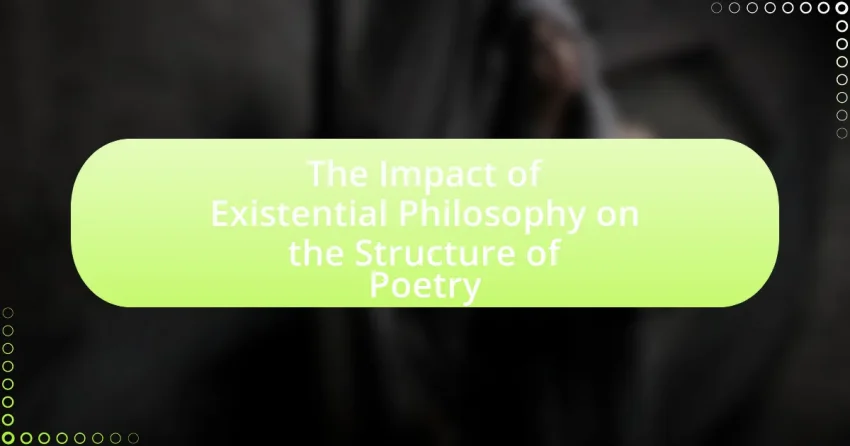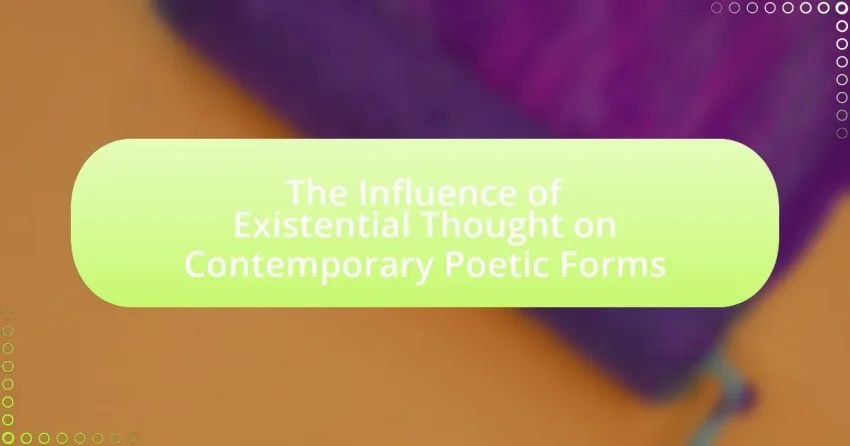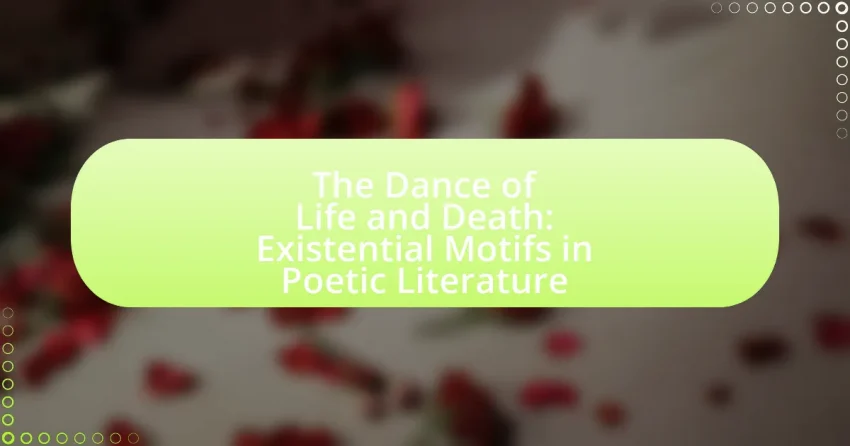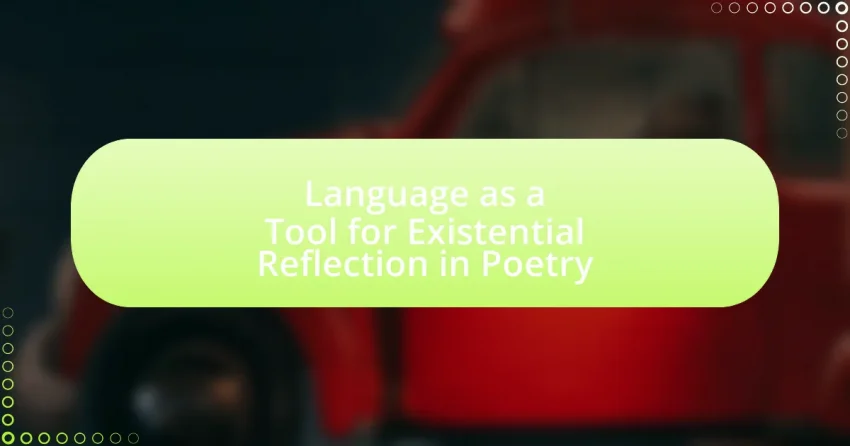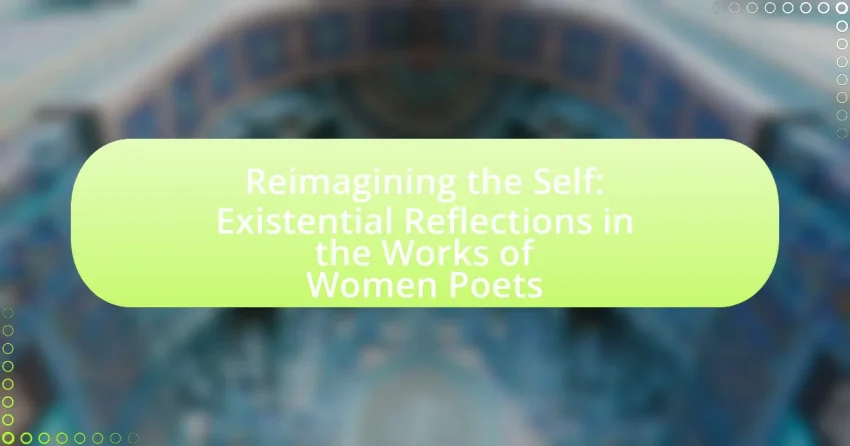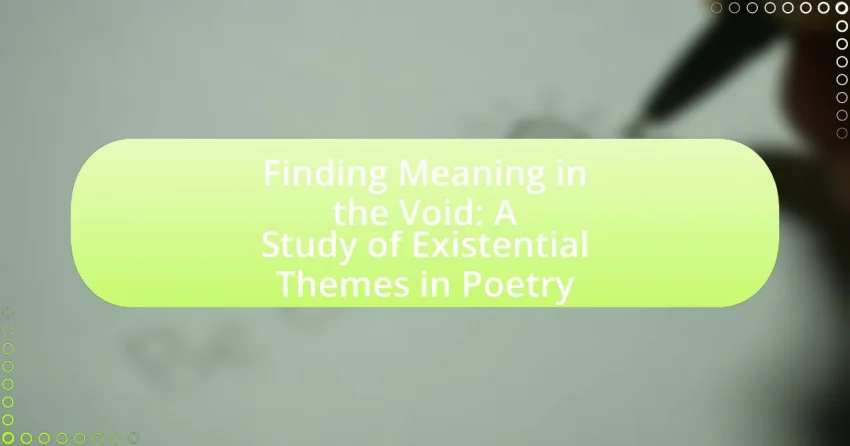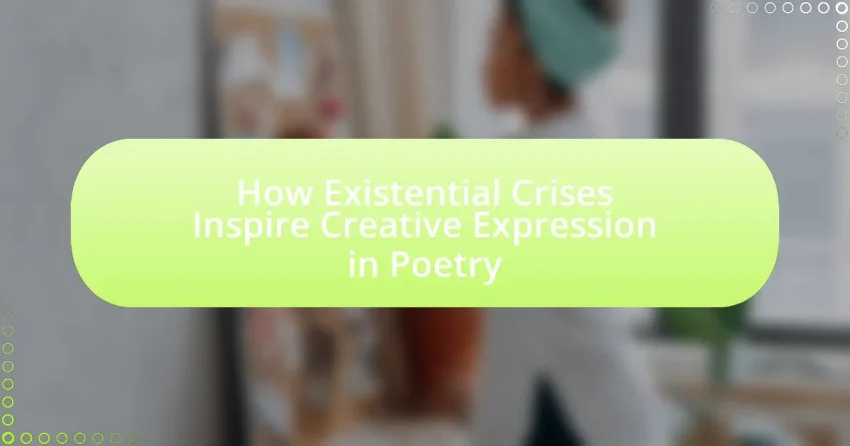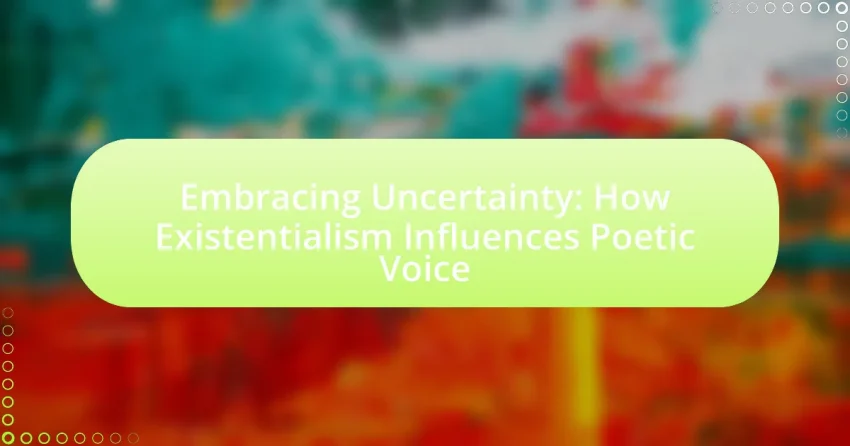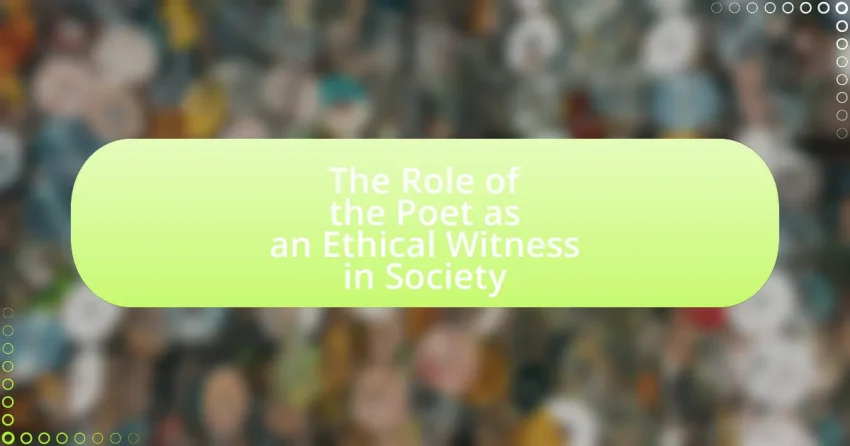The Paradox of Choice in poetic narratives refers to the anxiety and indecision characters experience when faced with multiple options, often leading to existential dilemmas. This article explores how this phenomenon manifests in poetry, impacting both the creative process for poets and the emotional journeys of characters. Key themes include the tension between freedom and…
The Impact of Existential Philosophy on the Structure of Poetry
The article examines the impact of existential philosophy on the structure of poetry, highlighting how themes of individual experience, freedom, and the search for meaning shape poetic forms and styles. It discusses the influence of poets such as T.S. Eliot and Sylvia Plath, who utilize fragmented structures and unconventional syntax to reflect existential dilemmas. Key…
The Influence of Existential Thought on Contemporary Poetic Forms
The article examines the significant influence of existential thought on contemporary poetic forms, highlighting how themes of individual experience, absurdity, and the search for meaning shape modern poetry. It discusses the works of poets such as Sylvia Plath and T.S. Eliot, who reflect existentialist ideas through fragmented structures and free verse, mirroring the complexities of…
The Dance of Life and Death: Existential Motifs in Poetic Literature
The article “The Dance of Life and Death: Existential Motifs in Poetic Literature” examines the profound themes of life and death as depicted in poetry. It explores how poets utilize existential motifs to reflect on the human condition, emphasizing the interconnectedness of existence and mortality. Key discussions include the expression of life through imagery and…
Language as a Tool for Existential Reflection in Poetry
The article examines the role of language as a crucial tool for existential reflection in poetry, highlighting how poets utilize linguistic techniques such as metaphor, imagery, and symbolism to explore complex themes of existence, identity, and the human condition. It discusses how specific word choices and structural elements influence emotional resonance and facilitate personal introspection,…
Reimagining the Self: Existential Reflections in the Works of Women Poets
The article “Reimagining the Self: Existential Reflections in the Works of Women Poets” examines how women poets explore and reconstruct identity through their poetry, often challenging societal norms and expectations. It highlights the significance of personal experiences in shaping self-perception and identity, with a focus on themes such as empowerment, autonomy, and intersectionality. Notable poets…
Finding Meaning in the Void: A Study of Existential Themes in Poetry
The article “Finding Meaning in the Void: A Study of Existential Themes in Poetry” examines the exploration of existential themes in poetry, including the search for meaning, the nature of existence, and the inevitability of death. It highlights how poets like T.S. Eliot and Samuel Beckett address feelings of isolation and despair through literary devices…
How Existential Crises Inspire Creative Expression in Poetry
The article examines the relationship between existential crises and creative expression in poetry, highlighting how personal turmoil can inspire profound themes of identity, purpose, and the human condition. It discusses the influence of existential crises on poetic themes, such as despair, isolation, and the search for meaning, with examples from notable poets like Sylvia Plath…
Embracing Uncertainty: How Existentialism Influences Poetic Voice
The article “Embracing Uncertainty: How Existentialism Influences Poetic Voice” examines the profound impact of existentialist philosophy on poetry, particularly in shaping themes of individual experience, freedom, and the search for meaning in an absurd world. It highlights how poets like T.S. Eliot and Sylvia Plath utilize fragmented narratives and introspective language to explore existential themes…
The Role of the Poet as an Ethical Witness in Society
The article examines the role of poets as ethical witnesses in society, emphasizing their responsibility to articulate truths about human experiences and highlight social injustices. It discusses how poets like Langston Hughes and Maya Angelou have historically addressed issues of race and identity, influencing public discourse and fostering empathy. The article also explores the characteristics…
